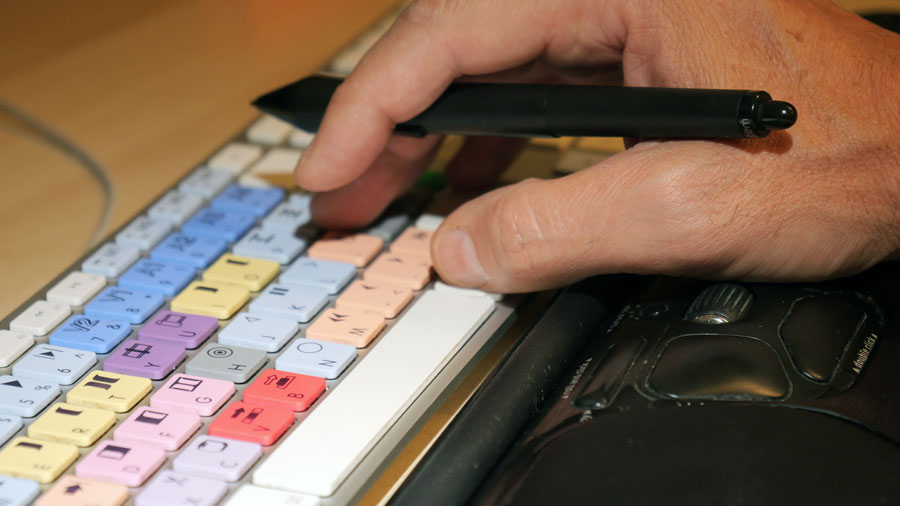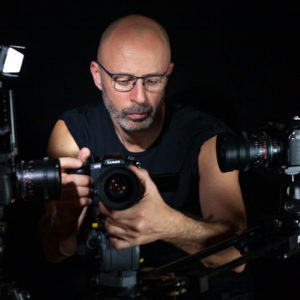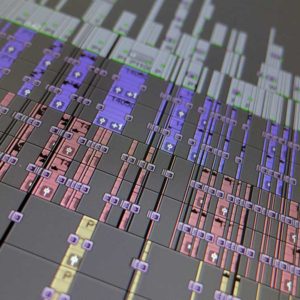
Frequently, I am contacted by people requesting my advice on how to become a video editor. In this blog article, I offer my perspective, based on my own experience of training in this skill, and some tips on how you can work towards becoming a video editor or gaining work in the post-production industry.
Working in post-production
Post-production is the final stage in film and TV production. The type, duration, and budget of any film will determine how many different stages and people will be required to be involved in the post-production for each project.
The actual video editing is just one part of that final post-production stage. Two examples:
A simple short film may have all of its post-production completed by one editor on their computer at home.
A complex TV programme or film may have its post-production managed by a post-production facilities house where different people with various skill sets will each work on various aspects of the post-production. These skills may include picture editing, VFX (visual effects) work, music production, sound mixing or colour grading.
You only have to look at the credits of different types of film and TV programmes to see how many people were involved in each project’s post-production.
There is so much to learn before becoming a professional video editor, especially if you wish to work in TV or film production. It may help if you consider becoming a video editor as a longer-term goal.
Editing workflow processes
In addition to the above examples, many additional processes may be required before editing. Some examples:
- The camera files may need to be transferred or backed up multiple times to maintain data safety.
- The original camera files may need to be transcoded into low-resolution versions or different codecs to suit the planned and agreed post-production workflow.
- External sound files may need to be synced up with the camera file guide audio.
- Multi-camera shoots will need their clips grouped up before the edit starts.
Working in a complex post-production environment gives you insight into these different areas. It exposes you to the complexities, problems and intense time pressures of TV and film post-production and editing.
Learning video editing software
One method of finding out if video editing suits you is to learn how to edit using editing software. The four main software applications for video editing are:
Avid Media Composer – used across the film and TV industry, especially for large shared projects that might have more than one editor working on them.
Blackmagic DaVinci Resolve – well-regarded for its colour-grading tools.
You can teach yourself how to edit on one of these applications on a good computer at home. You may even be able to get a free trial of your chosen software.
Once you have learned the basics of editing, you can learn how to use other software and apply those editing skills and techniques to any other software application.
Once you have familiarised yourself with software applications, an excellent way to start putting your learning into practice is to edit a small personal project. This could be something you film and record sound on your smartphone if need be. A personal project, like a short edited video or film, will give you achievable goals and introduce you to how long it takes to edit a simple project when you are starting to learn to edit. Once you have mastered the basic techniques, you can progress to more complex and longer projects.
What do employers look for?
I’ve been asked what some of the things that potential employers may look for are. I’m working on the basis that you will be looking to work for a film or TV production company or post-production facilities house.
- Current skills and knowledge of software applications.
- Problem-solving.
- Working on your own initiative.
- Creative flair.
- Personable – able to have good working relationships with a wide variety of people and personalities.
- Excellent communicator.
- Time management.
- Reliable and dependable.
- Quick learner.
- Responsive – work quickly and efficiently.
How can I improve my skill set?
Some of the things that you can do to improve your relevant skill set when looking for work in post-production include:
- Read up about everything related online.
- Search for and join online editor-related communities, groups or forums relevant to the software you use and the industry generally. You will learn a lot just by reading the conversations.
- Spend much time practising your editing skills to improve your knowledge and editing speed. Once people start to pay you to edit their projects, you will need to be able to edit quickly and accurately.
- Learn new skills and techniques – be inspired by the TV and films you watch – ask yourself how they created or edited them.
- Be in the right place at the right time – you may be needed to solve a staffing problem or to provide additional assistance to a project, and this will be a time you can prove yourself.
- Help people needing your skills – perhaps a friend or network connection needs help with their editing, social media content or short film?
- Understand the terminology – research any technical terms you are not familiar with.
- Shadowing an editor – sitting behind someone and watching them work is invaluable and a great way to learn. People use software in very different ways.
- Go on relevant training courses.
- Create your opportunities. You will develop your knowledge and skills by being dedicated and focused on tasks to help your future.
Once you decide to further your career in the TV, film or media production environments, you can contact agencies, companies and individuals to seek developmental roles that suit you best. To build up your knowledge and experience further, you could explore different related roles. This may mean working as an assistant editor or assisting in a production or post-production environment.
Although I started as a video editor, I now work as a freelance videographer and enjoy all aspects of the filming and editing creative process. The industry constantly changes, so having a broader interest and skill set may help protect your future employment.



